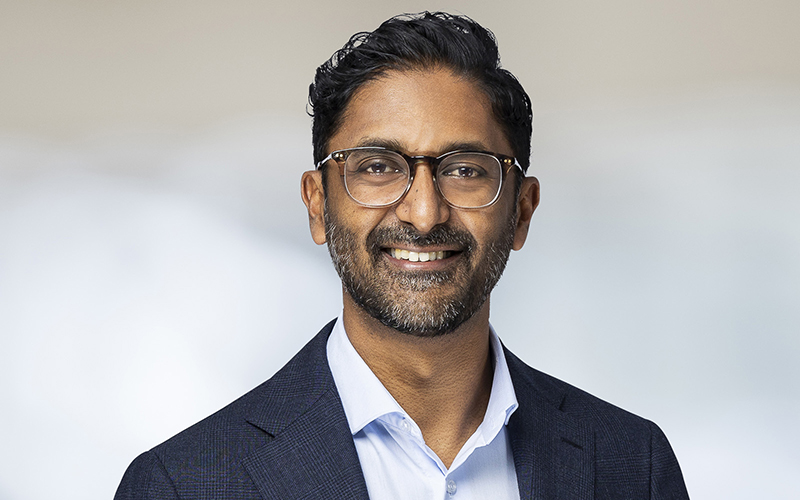
In a major step towards building Burnet Institute’s capacity to better respond to the current pandemic and other emerging health threats, and to prepare as a foundation partner in the ambitious $650 million Australian Institute for Infectious Disease, we’re pleased to announce the appointment of Associate Professor Suman Majumdar to the new role of Burnet Chief Health Officer – COVID-19 and Health Emergencies.
In addition to his role at Burnet in the Know-C19 Initiative, Associate Professor Majumdar played a leading role in the COVID-19 pandemic, working as the Federal Government’s principal medical advisor in the Victorian Aged Care Response Centre during the 2020 emergency response, and then for two years as Deputy Chief Health Officer with the Victorian Department of Health.
At Burnet, Associate Professor Majumdar will retain the position of Deputy Program Director, Health Security and Pandemic Preparedness, complementing his new role to ensure the Institute is prepared and equipped to respond to emerging threats.
Associate Professor Majumdar joined Burnet ten years ago to lead the development of the Institute’s tuberculosis (TB) initiative and then the institute’s Health Security program, now led by Professor Leanne Robinson.
He played a key role in establishing a multi-disciplinary and collaborative program of work on TB in the region with a focus on Papua New Guinea (PNG), and will continue to contribute to this effort, now led by Dr Philipp Du Cros and Dr Khai Huang, especially the SWEEP-TB project in Daru, PNG which is supported by the Australian Government Department of Foreign Affairs and Trade and the Medical Research Future Fund.
Burnet Director Professor Brendan Crabb AC said the role of Chief Health Officer would lead the development and implementation of the Institute’s strategic approach to pandemic preparedness, COVID-19 and other airborne pathogens and emerging threats and health emergencies.
The role would ensure the Institute has the expertise and resources to respond to current and future emergencies, working in partnership with governments, as well as research and public health agencies.
“When COVID-19 first emerged, we had to drop everything and respond to the pandemic,” Professor Crabb said.
“This new role will focus on how we do things in this space in a more strategic way, how we continue our existing COVID-19 response as the pandemic is still having an extraordinary impact, and how we can best respond to new health threats, especially those emerging as a result of rapid climate and environmental changes.”
Associate Professor Majumdar expects to maintain his strong links with government and continue to strengthen collaborations between Burnet, academic and public health institutions, other agencies and communities to achieve better health outcomes and advance health equity.
He said COVID-19 had delivered a wake-up call about how we respond to emerging health threats and prepare for the next pandemic.
“We talk about the pandemic being a once-in-a-lifetime event, but the reality is that we have already seen several global public health emergencies in the past 15 years including influenza, polio, Ebola, Zika and monkeypox, in addition to the huge impact from an unfinished response to existing infectious diseases such as HIV, malaria and TB,” Associate Professor Majumdar said.
“This will be compounded by the impacts of climate change and human activity leading to the increased risks of human and animal diseases developing and spreading, so we need to strengthen an integrated ‘One Health’ approach that optimises the health of humans, animals and ecosystems.
“There is an opportunity for significant change, including to better prepare health systems and response capabilities for health emergencies that starts with political commitment at the upcoming United Nations High-Level Meetings, to be implemented by governments and their partners with community at the centre.”
Associate Professor Majumdar said he was looking forward to playing a leading role in the development of the Australian Institute for Infectious Disease and supporting the establishment of the Australian Centre for Disease Control and the ongoing work through the Indo-Pacific Centre for Health Security, which would strengthen our pandemic preparedness and responses.
“We have remarkable capacity in Australia, and the aim is to bring together partnerships across all institutions and agencies to make our future responses both domestically and globally greater than the sum of our parts.”
